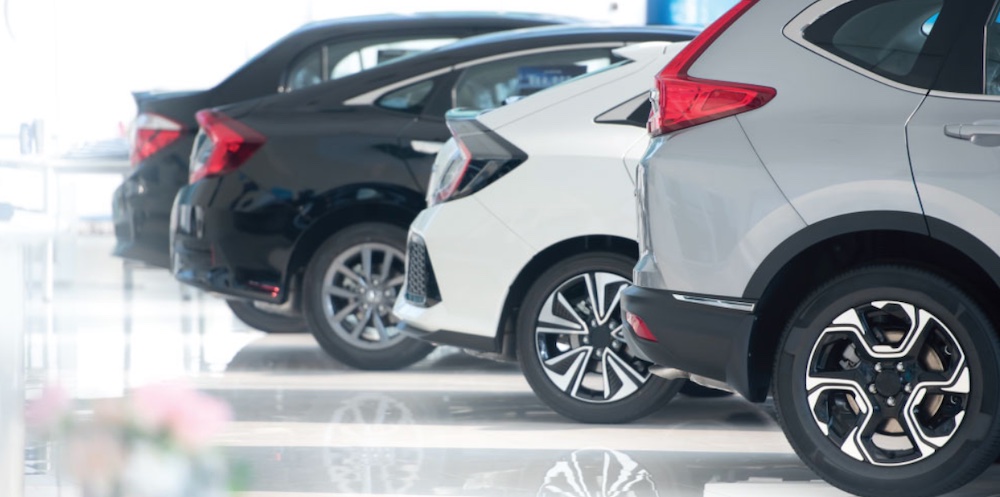Updated 4 months ago
Hybrid vs. Electric Cars: A Side-By-Side Comparison
Written by Zeeshan Hyder Zeeshan HyderZeeshan is a solar journalist who has long been passionate about climate issues and developed a deep interest in solar power after witnessing its succ...Learn more

Why you can trust SolarReviews
SolarReviews is the leading American website for solar panel reviews and solar panel installation companies. Our industry experts have a combined three decades of solar experience and maintain editorial independence for their reviews. No company can pay to alter the reviews or review scores shown on our site. Learn more about SolarReviews and how we make money.
Looking to save money on fuel costs for your car? Electric vehicles and hybrids are two great options to look into.
It’s a great time to make the switch; 2023 and 2024 models of hybrid and electric cars offer excellent fuel economy with possible incentives and rebates to help bring the cost down.
In this article, we’ll be doing a side-by-side comparison of hybrid and electric cars to see which type of vehicle will give you the best savings and be the better overall choice.
Hybrid vs electric cars at a glance
Hybrid cars use gasoline engines supplemented by small electric motors.
Electric cars rely solely on large battery-powered electric motors.
Hybrids are much cheaper to buy, but they qualify for fewer incentives and rebates than electric cars.
Compared to gas fuel costs, electric cars are up to 70% cheaper while hybrids are 60% cheaper at best.
Electric cars are much cheaper to maintain than hybrids as they have significantly fewer moving parts.
Electric cars cost more upfront but tend to have lower costs overall because of fuel costs, incentives, and maintenance, but your mileage may vary.
Hybrids vs. electric cars: What’s the difference?
Before we begin the cost comparison, here’s a quick explanation of how hybrids and electric cars work.
Electric cars run exclusively on powerful electric motors attached to large rechargeable battery packs. They’re also known as battery electric vehicles (BEVs), or, more simply, electric vehicles (EVs). Tesla models and the Hyundai Ioniq 5 are two popular examples of electric vehicles.
Hybrid vehicles are a cross between conventional gas-powered cars and pure electric vehicles. Each one features a standard, full-sized combustion engine (running off gasoline or diesel fuel), supplemented by one or more small electric motors powered by a battery. The gas engines do most of the work, which is why they’re often called "part-time electric cars".
There are two main subcategories of hybrid to be aware of:
Plug-in hybrid electric vehicles (PHEVs): Plug-in hybrids charge their batteries by connecting to an electric charging station or wall socket. These can typically operate short distances (20 to 30 miles) on electric power before switching to a gas-dominant hybrid mode. Some popular PHEVs are the Jeep Wrangler 4xe and the Toyota Prius Prime.
Regular hybrids, or HEVs: These cars replenish their battery packs using the gas engine and regenerative braking. The smaller electric motors are designed to assist the gas engine, either by extending its driving range or by adding a little oomph to performance. The Honda Insight is an example of a standard hybrid you’ve probably seen on the road.
Which is cheaper to buy?
Winner: Hybrids

Hybrids are relatively affordable, with many models available in the $25,000 to $35,000 range. The Honda Insight, a standard hybrid, is available for around $25,000 upwards, while the Toyota Prius Prime starts at about $28,000.
Electric cars tend to be more expensive, especially if you want one with a higher range. For example, Tesla models with over 300 miles of range all have starting prices over $60,000. The all-electric Chevy Bolt is a cheaper alternative, with starting costs in the mid $30,000s, but it only offers 259 miles of range. This is because a greater range requires a bigger, more powerful battery, and battery costs remain high.
Hybrids are the clear winner here.
Which has better incentives and rebates?
Winner: Electric cars
Electric cars are by far the best for incentives and rebates. There are some for plug-in hybrid cars, but there's not much out there for regular hybrids.
The most widely-available incentive is the federal EV tax credit, which can save you up to $7,500 on a new car purchase. It’s available for qualifying electric cars and plug-in hybrids – but doesn’t apply to any regular hybrids.
You may find additional incentives offered by your state, local government, or your utility; there are dozens of programs in operation around the country. One example is New Jersey's Charge Up NJ program, which encourages the purchase or lease of fuel-efficient vehicles worth under $55,000. Among eligible vehicles, there are rebates of up to $4,000 on electric car models and $1,050 on plug-in hybrids. Unfortunately, there are no rebates offered for regular hybrids.
NJ's Charge Up program is typical of incentive programs offered at the sub-national level. When we analyzed a random sample of 20 such programs, we found:
All of them covered all-electric cars (BEVs)
Plug-in hybrids (PHEVs) are covered by most (but not all), but the incentive values tend to be lower.
None covered regular hybrids.
Which has lower fuel costs?
Winner: Electric cars

Both hybrids and electric cars are much cheaper to run than gas cars, but electric vehicles have the edge once again.
It costs about 4 to 5 cents per mile to charge a Tesla with grid power. That’s 70-75% less than you’d spend on an average gas car, which has a fuel cost of 16 cents per mile.
For a highly efficient plug-in hybrid like the Kia Niro Hybrid, average fuel costs (gas plus electricity) are slightly higher, around 6 to 8 cents per mile. That’s roughly 50 to 60% cheaper than a standard gas car.
For a highly-efficient gas hybrid like the Honda Insight, fuel costs are around 7 cents per mile, or about 55% cheaper than a regular gas car.
To summarize, electric cars are up to 70% cheaper than gas cars, while hybrids are at best 60% cheaper. Electric cars win by a small margin.
Which is cheaper to maintain?
Winner: Electric cars
Electric cars are a lot more affordable to maintain than any other type of car.
EVs have lower upkeep requirements – and lower maintenance costs – because they don’t have a traditional engine and its associated moving components. That means there are no more oil changes! And no more worrying about replacing gaskets, cylinder heads, spark plugs, and more. You don't even need to get emissions testing done since they don't have tailpipes.
All said, an electric car is easily $400 to $1,000 cheaper to maintain each year than a gas car.
Hybrid cars, by contrast, are not cheaper to maintain than gas cars; if anything, they cost more. Hybrid cars have all the moving parts that come with a typical gas car, plus the additional components required by the supplementary electric system.
Hybrids vs. electric cars: Overall cost comparison
Electric cars are the clear winners. They qualify more for more incentives and rebates, and they are much cheaper to operate due to lower ‘fuel’ and maintenance costs.
Electric car savings add up over time, so you’ll the greatest benefits if you plan to drive long distances or own your car for several years.
The only advantage of hybrid cars is their lower sticker price, but this is reduced – or even canceled out – thanks to the substantial incentives and rebates available for electric vehicles.
Still not sure which to choose? You should put the calculator aside and consider other, non-financial factors. After all, money ain’t everything! Don’t want to worry about charging during a long road trip? Choose a hybrid. Excited about instant torque and a lightning-quick 0-60? Go all in on an electric! Either option will save you money compared to the alternative, an old-fashioned gas car.
Use solar panels for cheap charging
With a gas car, you have little control over your fuel costs – you have to pay the price set by your local gas stations.
With an electric car or plug-in hybrid, you have a lot more control over your cost to charge. You can charge at a public station, at home with grid power, or at home with solar panels. Here’s how much each option will typically cost you:
Public charging: $0.28 - $0.69 per kWh
Grid power at home: $0.10 - $0.40 per kWh
Home solar panels: $0.05 - $0.11 per kWh
Home solar panels are usually the cheapest way to charge an EV’s battery, costing an average of $0.11 per kilowatt-hour to charge. By comparison, charging with power from your utility company will likely be closer to $0.15 per kilowatt hour. As a huge bonus, solar panels can also power your entire home, dramatically reducing your home energy bills.
You can learn more about using solar panels for charging and home use by using the solar calculator below.
Zeeshan is a solar journalist who has long been passionate about climate issues and developed a deep interest in solar power after witnessing its successful adoption in Australia. He has previously worked as a journalist for a major news organization, covering energy, climate, and environmental stories, among other topics. He also served as an organizer for the Pakistan Youth Climate Network, an advocacy group aimed at raising climate awareness...
Learn more about Zeeshan Hyder